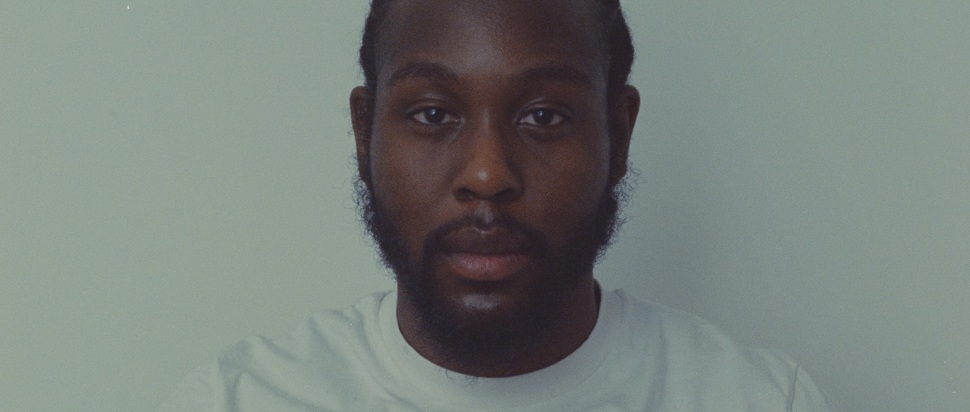Caleb Femi on his house party poetry collection The Wickedest
We chat with Forward Prize-winning poet Caleb Femi about his sophomore poetry collection The Wickedest, which explores the intimate mechanisms of a house party in London
In The Wickedest, Caleb Femi guides you into the deepest, warmest, most liberating corners of your imagination. As August clouds part over the Meadows, he meets me between festival panels and book signings to discuss his new poetry collection, which takes place over one night at an iconic London house party. Stories of movement, desire and community aren’t new to poetry, but scenes from a basement rave are and Femi tells me readers are ready to get in on that feeling.
“You can’t experience this through a voyeuristic lens,” Femi explains. “When we are together, we are responsible for one another and the quality of experience we have together. We all have to take responsibility and shoulder that.” Femi gives as much agency to the reader as he gave himself when writing. Community and solidarity require double jeopardy.
The Wickedest is metered by a circadian rhythm, minute-by-minute timestamps taking you from the beginning of the dance to the burger and chips after. “There’s a particular experience you can have at 2am, that you can’t have at 9pm,” he says. It’s an invitation to get involved for an audience that may be more used to the dynamics of poet as performer and audience as silent observer, but Femi is ready to carve out a space of belonging and experimentation for himself and others. He is a poet trying to run off the page and stage.
“There are some parties where you automatically feel at ease, regardless of whether you know people there or not,” Femi says. “I wanted to give people that level playing field: we’re all strangers to each other, but there are ways to find out the complex meaning behind why we are, why we dance and our relationship to movement and physical space.” The physicality of the event is purposefully obscured; this could be your house party or last night’s rave. As you move from flirty smoking areas to the back of the line to the sweaty dance floor, the words morph with our own touchstones and memories.
This obscurity transfers onto the collection’s characters. “You know people by how they move, and that’s enough at a party,” he says. “The fact you’re all here together unifies you, it speaks to your common interests.” Femi plays with becoming and reinvention to remind us that identity is not fixed but ours to name. “A party’s function doesn’t have a start or end. The essence of a party stays with you and its functionality lives on.”
Even though we may gather for slightly different reasons, there are common salvations partygoers seek. These partygoers are “people who survive day to day, uncoloured by a desperate sense of survival, who want to ridicule the forces against us.” There is a magical, collective imaginary running through the collection, the making of community minute by minute. “A kitchen table at a house party can give you what you need to survive tomorrow. It’s a swap meet for ideas.” Femi smiles and recalls one of his favourite lines from the collection: 'The month has been greedy off our misery, but don’t you like us like this? Alive, we are still alive.'
Is it possible to have a congregation of excited, hungry people, and not feel desire in the room? Caleb takes the retelling of “love in all its variety” very seriously, wanting to nod to ‘the year of yearning’. Another of those universal experiences: our nights are swayed by a crush in attendance, or an ex across the room. When our inhibitions are loosened, “desire is about survival,” Femi says. “There is another reason to wake up and see tomorrow. Desire in and of itself is important for a community that needs as many reasons as it can get to survive.”
Most striking, perhaps, is how long the night in The Wickedest goes on. 5am and Caleb leaves us at Bagel King, club crowds congregating on the street and swapping numbers and side looks. In Edinburgh, meanwhile, clubs close at 3am and the Bridges take on the weight of the afterparty. But even in the English capital, the nightlife industry is steadily falling out of favour with local councils. “One of my main motivations was the dwindling presence of nightlife,” Femi explains. “Through consecutive criminal justice bills, licences aren’t being renewed, commercial rent is increasing and the cost of living crisis makes going out an astronomical expense. Local governments say they are tackling loneliness but shutting down places where people gather. It’s all linked to mental health and the expectation that everyone goes to a nice home at night and switches off. That’s not true. Nightlife could change public health and needs collective rebuilding.”
The Wickedest is a desire-fuelled collection, bringing all the challenges and social good of our current moment into one room, thrashing out its contradictions under a DJ’s steady hand. Femi calls on us to unionise as one joyful, aching body, identifying parts and offshoots that need particular, caring attention. He introduces you to the bouncer, buys you your first drink and then leaves you on the dancefloor to make your own way.
The Wickedest is out on 12 Sep via Fourth Estate
